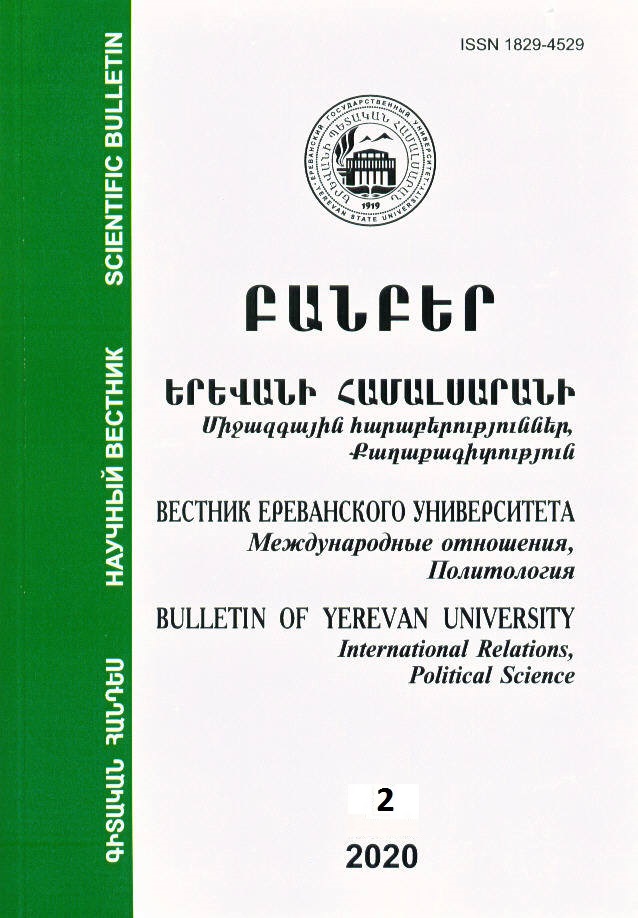The Factor of Armenian Genocide in the Current Armenian-Turkish Relations: Scenario Analysis
Keywords:
Armenian Genocide, Armenian-Turkish relations, scenario analysis, reconciliation, rapprochement, Nagorno-Karabakh conflict, EAEU, recognitionAbstract
Reconciliation and regulation of Armenian-Turkish relations are of great importance, as problematic relations, or more specifically, the absence of official relations such as closed border, create threat to national security and prevent the sustainable development of Armenia, impact on regional stability and on regional cooperation in general. This article is an attempt to study the history of Armenian-Turkish relations of recent times proposing and counting outcomes of their possible future. Consequently, the research goal is to develop scenarios of the Armenian-Turkish rapprochement considering various factors. The research question is what probabilities the scenarios have considering the recognition of the Armenian Genocide and what other factors may influence the reconciliation of Armenia and Turkey? The study is conducted through the analysis of historical-critical, factual and statistical data while the research methods are Delphi method and Scenario analysis with the inclusion of a probabilistic assessment of political events’ occurrence in the general algorithm of scenarios construction.

